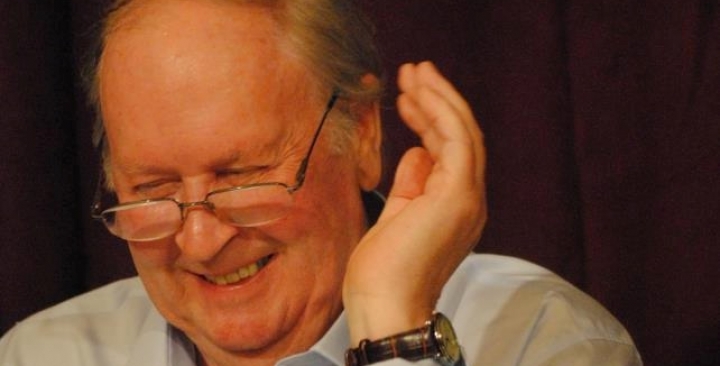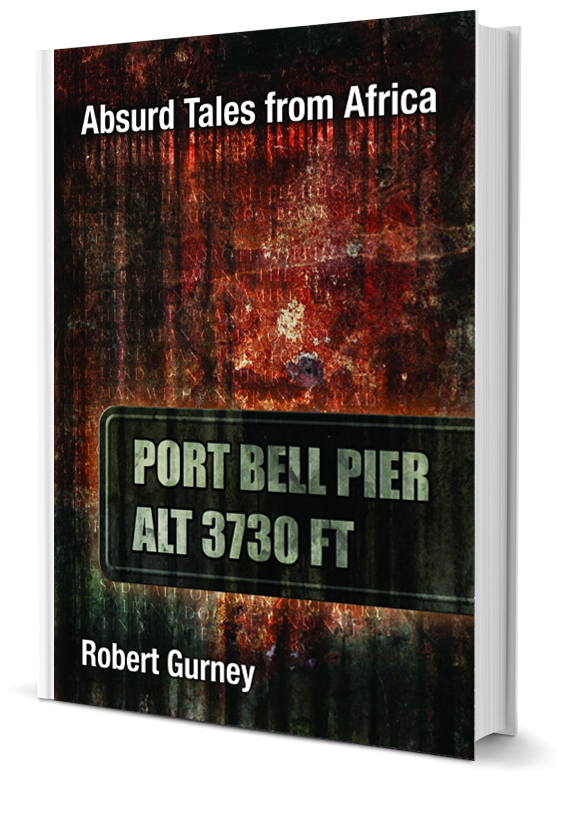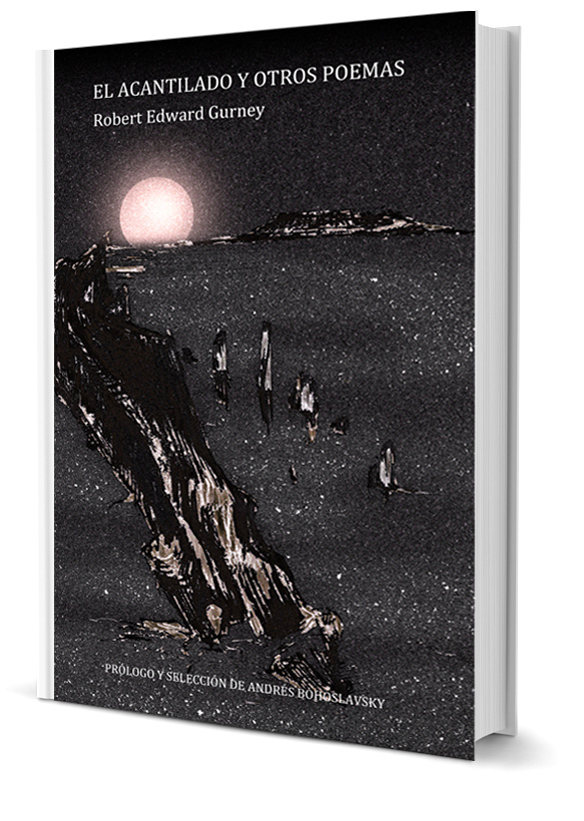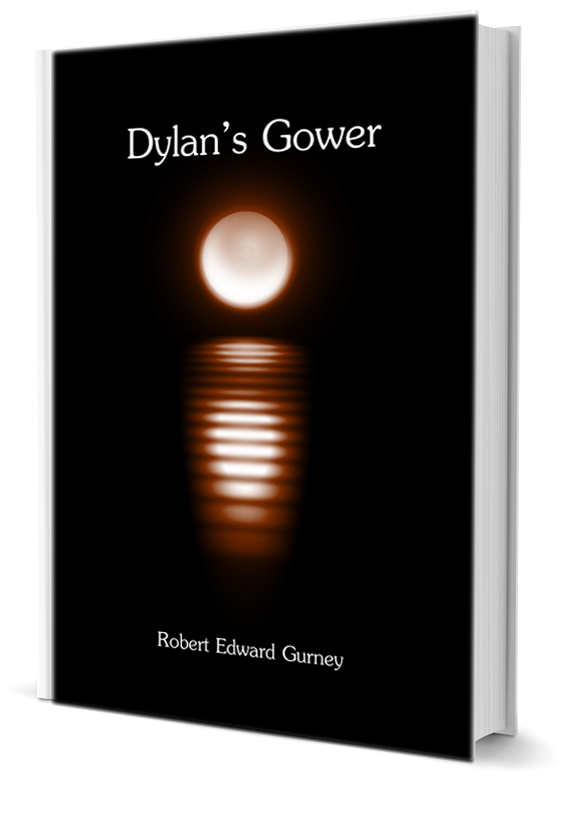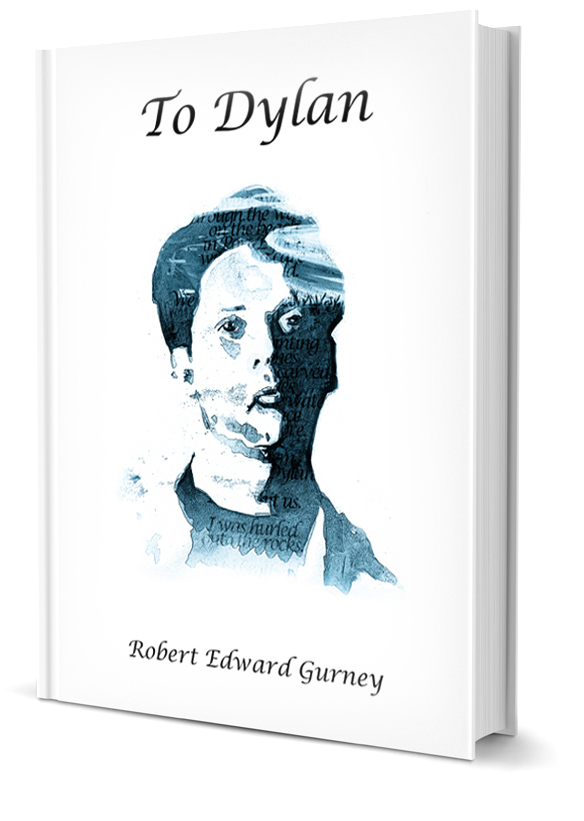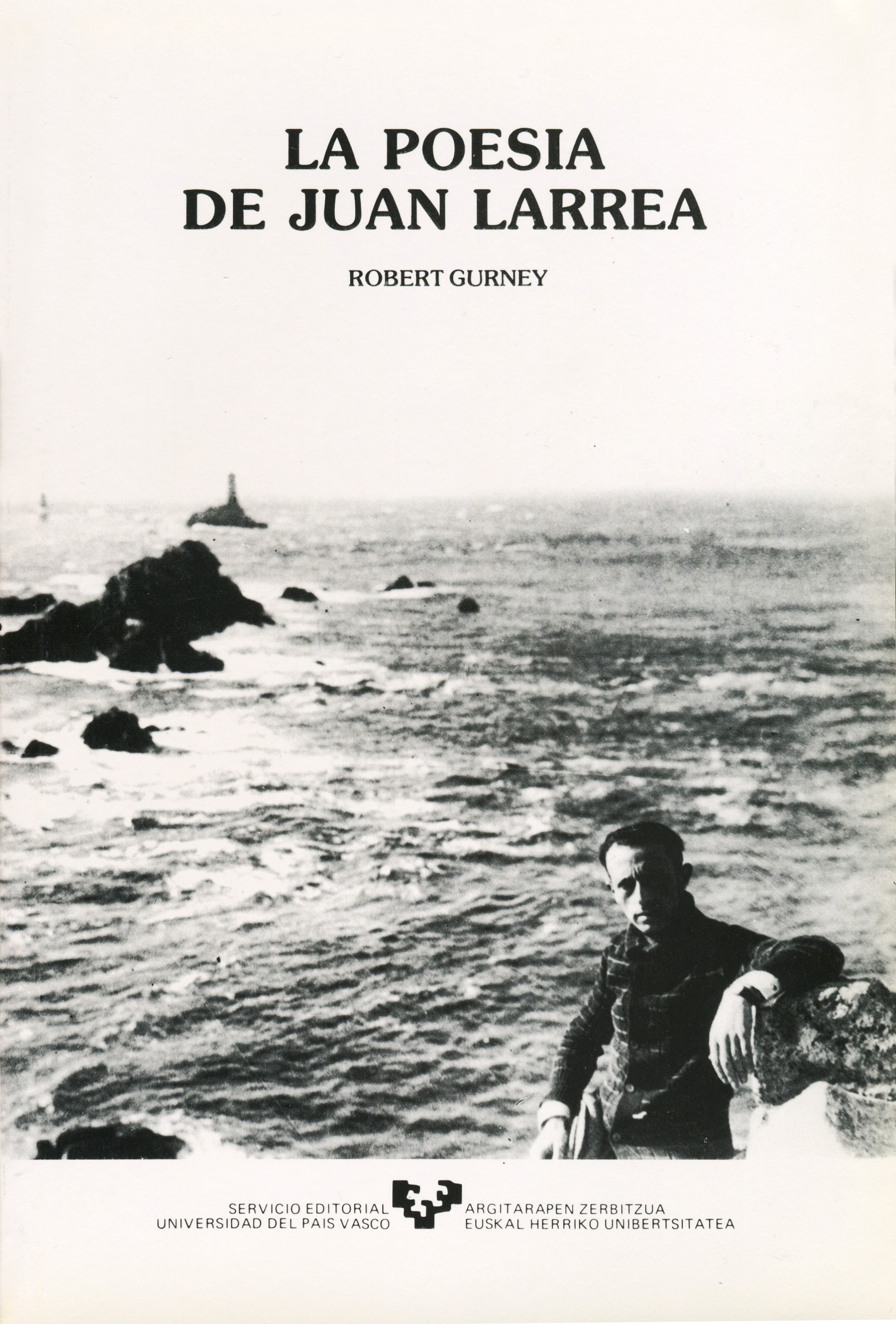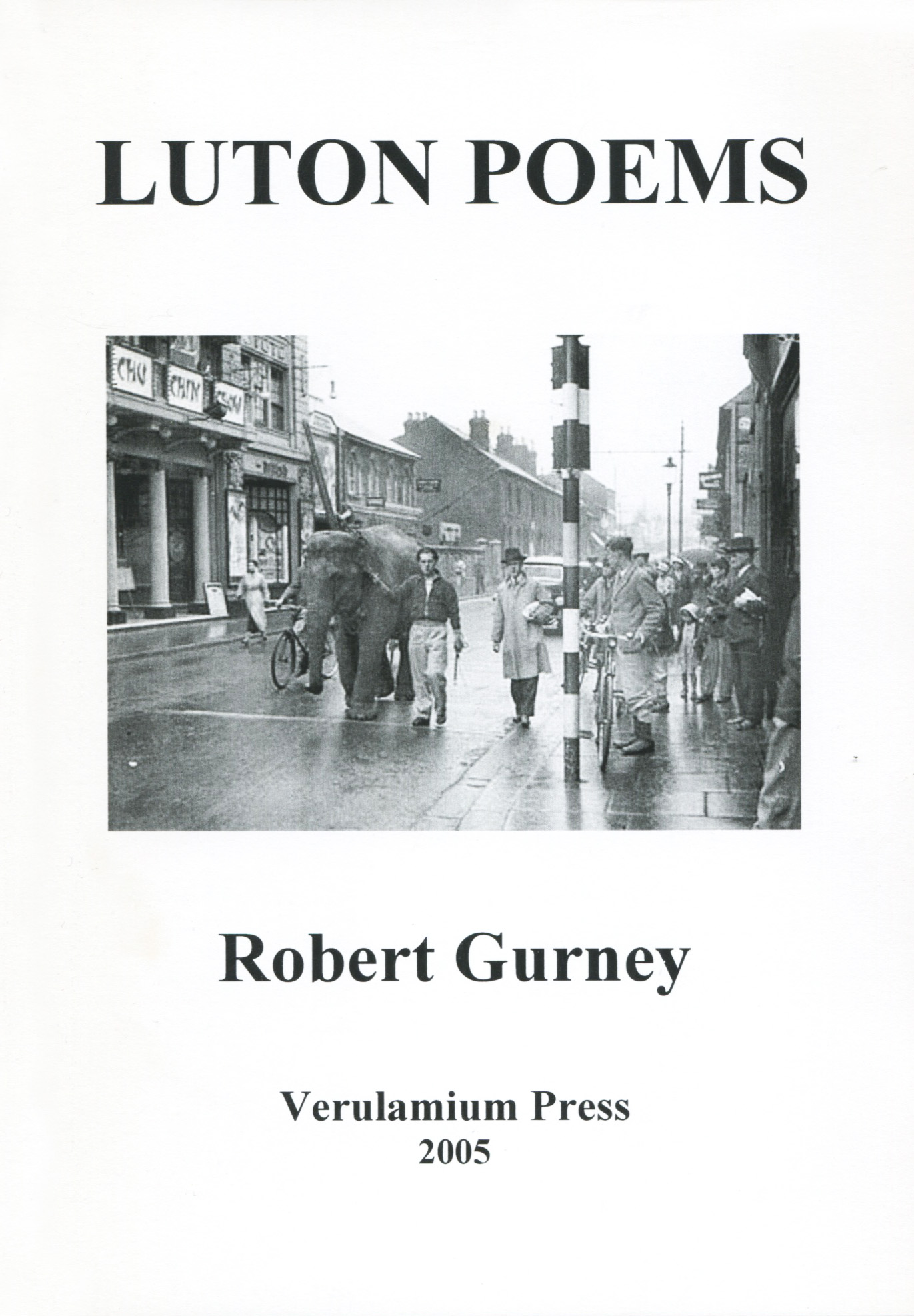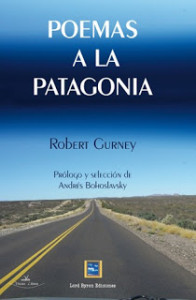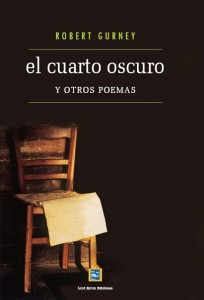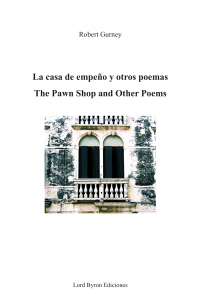https://en.wikipedia.org/wiki/Robert_Edward_Gurney
https://en.wikipedia.org/wiki/Robert_Edward_Gurney
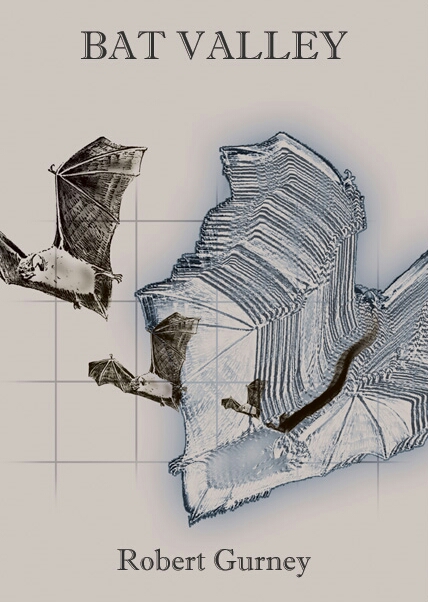
Bat Valley. New book. Kindle and Amazon. Cover image by my son (William). https://www.cambriabooks.co.uk/portfolio/bat-valley/ Bat Valley and Other Strange African Animal Stories, Llyfrau Cambria Books, Llandeilo, 2017, ISBN 978-1-9997416-0-0. eBook ISBN 978-1-9997416-1-7
http://www.literaturewales.org/writers-of-wales/i/146326/desc/gurney-robert-edward/
http://www.literaturewales.org/writers-of-wales/
Facebook:Facebook: https://www.facebook.com/robert.e.gurney
Author Page: https://www.facebook.com/authorbobgurney
El acantilado y otros poemas, Llyfrau Cambria Books, Wales, 2017, prólogo y selección de Andrés Bohoslavsky. ISBN 978-0-9954608-3-6.
On the occasion of one hundredth anniversary of Dylan’s Thomas birth in 1914, Robert Gurney published two books of poems that refer to the influence Dylan and his area have had on him:
http://www.cambriabooks.co.uk/portfolio/poems-dylan-robert-gurney/
Publisher: Cambria Books, Llandeilo, Camarthenshire, Wales.
Dylan’s Gower, Cambria Books, Llandeilo, Wales, 2014, 110 pages. ISBN 978-0-9930862-2-9.
To Dylan, Cambria Books, Llandeilo, Wales, 2014, 80 pages.ISBN 978-0-9928690-3-8.
On 23 April 2014 Robert Gurney was filmed in Madrid reading his poems for a series of TV programmes on contemporary poets writing in Spanish. Here he reads his poem ‘Bacon’ from his book La casa de empeño/The Pawn Shop (Lord Byron Ediciones, bilingual edition, 2014):
http://www.nciwebtv.tv/H5/video-12016-el-poema-de-la-semana-t3-robert-gurney.htm
La poesía de Juan Larrea was published hy the University of the Basque Country in 1985 (described as “the best book on Larrea’s poetry” by the Argentine poet Graciela Maturo (Larrea scholar and friend of the Spanish poet). La poesía de Juan Larrea, Universidad del País Vasco, Servicio Editorial/ Argitarapen Zerbitzua, Euskal Herriko Unibertsitatea, Lejona (Bilbao), 1985. ISBN: 84-7585-027-8. 331 pages.
He lectured in French and Spanish at Hendon College of Technology which became part of Middlesex University. Robert initially taught modern French poetry and but went on to specialise in modern Spanish and Latin American poetry.
He has published articles and chapters in books on aspects of the Hispanic avant-garde: principally the work of Juan Larrea, Gerardo Diego, Vicente Huidobro, César Vallejo, Luis Buñuel (ultraísmo, creacionismo and Surrealism). He took early retirement in 2001 in order to concentrate on writing.
Antologia Poética de Robert Gurney, Colección Poéticas, clásicos de la poesía contemporánea, Selección y Nota Introductoria de Leo Zelada, Lord Byron Ediciones, Madrid, 2015. (In press)
La libélula y otros poems / The Dragonfly (dual language edition), Lord Byron Ediciones, Madrid, 217 pages, ISBN 978-84-9949-209-4, was launched in the Café Comercial in Madrid on The Day of The Book (el Día del Libro), 23 April, 2013.
Luton Poems (2005)
In 2004 he set up Verulamium Press (St Albans) and published:
Bohoslavsky, A.,The River and Other Poems, translated by Robert Gurney, Verulamium Press, St Albans. 2004. ISBN: 0-954-716604.
In 2004 Robert published his own Poemas a la Patagonia, Prólogo y selección de Andrés Bohoslavsky, Verulamium Press, St Albans. ISBN: 0-9547166-1-2. A further, expanded edition was published in Madrid by Lord Byron Ediciones in 2009 (available on Amazon and Kindle):
http://www.amazon.co.uk/Poemas-Patagonia-Robert-Gurney/dp/8498866081
Nueve monedas para el barquero, Antología, edición a cargo de Robert Gurney, Verulamium Press, St Albans, 2005. ISBN 0-9547166-3-9. 100 páginas. Poemas de María Teresa Andruetto, Raúl Artola, Andrés Bohoslavsky, Julio Carabelli, Bruno di Benedetto, Robert Gurney, Monica Larrañaga, Ketty Alejandrina Lis, Sergio Rigazio.
Gurney, R., Luton Poems, Verulamium Press, St Albans, 2005.
ISBN: 0-9547166-3-9. 69 pp.
Bob,
Wasn’t too sure about your “non conformist” if thats the word,
style of poetry as I may have told you. BUT I have just played the video
on Luton on line website and am absolutely converted. It is
brilliant! Your reading is so full of expression it sounds to me like
music. Why don’t you make a full reading on video?
More than ever you must get a copy of your book to me by hook or
by crook. I’m not so sure that I can ever get the expression into my
mind without your rendering. Congrats Absolutely Brilliant again.
Your Humbled convert,
John Pope
(The late John Pope was Chief Engineer at Vauxhall Motors, Luton.
In April 2008 Madrid-based Lord Byron Ediciones published his book El cuarto oscuro y otros poemas (ISBN 9972 2755-0-7 described by Ketty Lys, who edits the Poéticas (Argentina) website, as his best book to date.
Leo Zelada (Peru) poet and publisher, on El cuarto oscuro:
Gurney, R. E., El cuarto oscuro y otros poemas, Lord Byron Ediciones, Madrid, 2008. ISBN: 9972-2755-0-7. Colección: Prometeo desencadenado.
The Poetry of Robert Gurney belongs to the best English tradition, with its verbal clarity and skilled handling of colloquial language. Nonetheless one notes the outpouring of a poetics of intensity, peculiar to the best Latin American poetry. Tradition and modernity intermingle to harmonious effect in this volume of poetry. The Dark Room is a successful book, where, in these times of globalisation of culture and waning national frontiers, we recognise an author who, though English, astonishes us with his striking syncretic fusion of English and Latin American poetic traditions.
La Poesía de Robert Gurney se desliza en la mejor tradición anglosajona, con una precisión en la palabra y un manejo diestro del lenguaje colloquial. Empero se nota el desborde de la poética de la intensidad, propios de la mejor poesía latinoamericana. Tradición y modernidad atraviesan armónicamente este poemario. Cuarto oscuro es un libro logrado, que en estos tiempos de globalización cultural y de los límites de las fronteras nacionales, nos brinda un autor que siendo inglés, nos sorprende con un brillante sincretismo literario de la literatura inglesa y la tradición poética de América Latina.
2009 saw the publication of an augmented edition of Poemas a la Patagonia, prólogo y selección de Andrés Bohoslavsky, Lord Byron Ediciones/Editorial Visión libros, Madrid, 2009. ISBN: 978 84 9886 608 7.
“Poemas a la Patagonia nos confirma a un poeta inglés que está escribiendo en la actualidad una de las más interesantes poéticas en lengua castellana.”
In 2017 Lord Byron Ediciones, Madrid, will publish an anthology of poems taken from four books previously published by them: Colección Poéticas, Clásicos de la poesía contemporánea, Antologia Poética de Robert Gurney, Selección y nota introductory: Leo Zelada. 120 pages. Postponed. Pending.
La casa de empeño y otros poemas / The Pawn Shop and Other Poems (dual language edition):
23 April 2014, el Día del Libro, the Day of the Book, saw the launch, in Madrid’s Café Comercial, of Robert’s second dual language book of poetry: La casa de empeño y otros poemas / The Pawn Shop and Other Poems, Lord Byron Ediciones, Madrid, Colección Prometeo desencadenado, ISBN 978-84-9949-522-4, 159 pages, about which Leo Zelada has written:
“Robert Gurney es un verdadero hallazgo lírico, leer sus libros es descubrir a uno de los más importantes poetas ingleses contemporáneos”.
“Robert Gurney is a real lyrical find, to read his books is to discover one of the most important contemporary English poets.”
Title of event in which the book was launched: La Noche de los Libros, Recital Internacional de Poesía, “Madrid, La Nueva París Literaria”.
See: http://lordbyroneditorial.blogspot.com.es/2014/04/presentacion-de-los-autores-de-nuestra.html
See selection of poems in Spanish from La casa de empeño/The Pawn Shop in Con Voz Propia:
http://www.convozpropiaenlared.blogspot.com.ar/search/label/Robert%20Gurney
(Scroll down right hand side to Robert Gurney for earlier entries)
Prizes:
1. Awarded the Juan Laurentino Ortiz prize for best book in Spanish as a Second Language, Paraná (capital of Entre Ríos Province), Argentina, 28 February, 2010.
PREMIO INTERNACIONAL “JUAN LAURENTINO ORTIZ” 2009 DIPLOMA DE HONOR A LIBRO EN IDIOMA CASTELLANO COMO SEGUNDA LENGUA: a Robert Gurney (Hertfordshire, Inglaterra), por El cuarto oscuro.
2. CONCURSO DE POESÍA LIBRE de ARTESANÍAS LITERARIAS. Tercera mención de honor: Robert Gurney (Gran Bretaña) por su poema 3 poemas, tema: Rimbaud. www.artesanias.argentina.co.il
His poetry appears on Hispanic websites, for example:
http://www.poeticas.com.ar (Sección Inglaterra) and
http://www.convozpropiaenlared.blogspot.com.ar
http://convozpropiaenlared.blogspot.com.ar/2013/11/robert-gurney.html
Brindin Press published a selection of his translations of Andrés Bohoslavsky’s poems. See Brindin Press Virtual Chapbook No. 34 (Feb. 2006): http://www.brindin.com/vcb34cov.htm
Robert has also had poems published by Brindin: http://www.brindin.com/wwn.htm
A Night in Buganda. Tales from Post-Colonial Africa, Verulamium Press, St Albans, 2014, 169 pages, ISBN 978-0-9547166-4-6, is now available on Kindle:
http://www.amazon.com/dp/B00KU9WS5Q
http://www.amazon.com/Night-Buganda-Tales-Post-Colonial-Africa-ebook/dp/B00KU9WS5Q
Go to the A Night in Buganda page of this website for reviews. Go to the BUY page for how to purchase a paper copy.
Bio for A Night in Buganda:
Robert Gurney lived in Uganda between 1964 and 1967, key years in Uganda’s history. Robert has compared the memories of those eventful years to a compressed file. It was almost impossible at the time to make total sense of the fast-moving events.
He attended Luton Grammar School where his Spanish master, Enyr Jones of Gaiman, Chubut, in Patagonia, shared with his pupils a view of Spanish and Latin American literature imbued with a Latin American and Welsh sensibility. Enyr Jones was the most relaxed of his teachers and seemed to like the pupils. His method was one of close textual and linguistic analysis, for example of the novel Pensativa by José Goytortúa Santos (Mexico), Zalacaín el aventurero by the Basque novelist Pío Baroja, Cervantes’ Don Quijote and Las novelas exemplares. One of the French authors studied in the Sixth Form was Albert Camus whose novel L’étranger and Existentialism left an indelible impression on the whole class.
Robert graduated in French and Spanish from St Andrews in 1964, having spent a year in Paris as an assistant de langue anglaise at the Lycée Chaptal and at the Sorbonne where, as an auditeur libre, he attended Spanish literature lectures in French. He spent a shorter period at the University of Salamanca. In Paris he tried, unsuccessfully, to write a novel. Since then he has completed a novel (unpublished).
At St Andrews, Professor L. J. (‘Ferdy’) Woodward’s lectures and tutorials made a deep impression on him. Ferdy’s Spanish poetry classes were the highlight of the week. Ferdy developed students’ imaginations. Robert tried to put into effect the lessons Ferdy taught him when he himself went into lecturing. Unless one had been taught by Ferdy, it was difficult to understand his message. It was more than the acquisition of facts, more than being about social and economic usefulness or relevance. It was about creativity. When asked what his philosophy was, Ferdy replied: “making square pegs for round holes”. The class nodded in agreement.
Douglas Gifford added a tremendously mind-broadening dimension to the Spanish programme with lectures ranging from the origins of the Spanish Language and Latin American colloquial Spanish (slang, euphemisms etc) to ‘erotic arrangements’ in medieval Spanish cities and Spanish texts written in Arabic. One of the final year projects Robert particularly remembers completing under Douglas’s supervision involved research into the way the pilgrimage to Santiago de Compostela had influenced place names along the ‘Camino de Santiago’ in northern Spain.
Dr Arsenio Pacheco underlined the importance of establishing an individual point of view on the authors studied, valuing the contributions of all thirteen students in the class of ’64, the largest by far up to that date (the previous intake had never gone above nine) to the understanding of the text being studied. Dr. Pacheco taught students that there was not just one answer to a question to aim at on, say, Unamuno, in order to get a good mark. This was a different approach from that of the French where there seemed to be a requirement to produce blueprint answers. Dr Pacheco also offered a Catalán option (which Robert took) and was eagle-eyed with students’ translations from and into Spanish. Robert’s rudimentary Catalán proved invaluable in negotiations with staff in the University of Valencia when the latter would go into secret conclave in the local language. Waiting for his moment, he would interrupt, in Spanish, with “Yes, but on the other hand”.
On graduating from St Andrews there was a possibility of undertaking post-graduate study in the field of Spanish Philology/Linguistics. Two topics discussed were ‘The Gypsy Language of La Mancha’ and ‘Thieves Slang in Barcelona’. Caló and Germanía had featured in the undergraduate programme. Robert was not tempted by either. He was more interested in undertaking research in twentieth century Spanish poetry, specifically Lorca. At the time, however, he felt (wrongly, he sees now) that he had spent enough time studying the writings of the dead. In retrospect, he can see the personal benefit he received from studying Cervantes, Lope de Vega, Calderón, Fray Luis de León, San Juan de la Cruz, Saint Teresa of Avila, Góngora, the anonymous author of Lazarillo de Tormes and other Picaresque authors whose presence can sometimes be detected in Robert’s poems and short stories.
Robert was selected to join the TEA scheme (Teachers for East Africa, an Anglo-American joint aid programme). Arriving in Uganda with high hopes – his decision to go there was essentially idealistic, part and parcel of the heady atmosphere of the sixties – it was difficult for him to know what to think as the country lurched from democracy towards dictatorship. This book was written as an attempt to make sense of a complex personal experience.
In 1965 Robert completed the Diploma of Education at Makerere University College, Kampala, Uganda, part of the University of East Africa (now Makerere University). Teaching practice was at secondary schools in Kampala and Tororo, on the Uganda-Kenya border. In 1965 he began a full-time post at Kitante Hill Senior Secondary School, where he taught English and French. He was also put in charge of sport and launched a great variety of activities by badgering the European clubs in Kampala to open up their facilities to the kids. The pupils were from poor backgrounds. He would say, “Look, the country is independent now. Come on, you know it makes sense” and they would open up their swimming pools, tennis courts, badminton courts, etc, etc.
While in Kampala, he concentrated on developing his French, obtaining the Saint Cloud audiovisual method certificate offered by the French Embassy. He lived in a small French community on Nakasero Hill, in central Kampala, next to Lugard’s Fort, among French Embassy staff and people from Rwanda and the Congo. He created (wrote, presented and acted in) a series of programmes, French for Schools and Colleges, for Uganda ETV. He enjoyed driving in Rwanda, Burundi and Zaïre (now the Democratic Republic of the Congo). He tried, unsuccessfully, to create a link between Kitante and a school in Kigali, Rwanda. In 1965 he taught French, briefly, on the same voluntary basis as that of the French TV programmes, at Bombo Sudanese Refugee Camp near Kampala. He felt a growing need to move on to post-graduate study and contemplated applying to Makerere. The topic he had in mind was the Novel in Francophone Africa but this may have involved completing the MA in African Studies first.
During his last two years in Uganda the project slowly formed in his mind to undertake back in the UK post-graduate on the poetry of Federico García Lorca. He was fortunate to be allocated the Lorca specialist Ian Gibson as his research supervisor by Professor Anthony Watson of Birkbeck College, University of London. Ian persuaded Robert to investigate the work of Juan Larrea, possibly Spain’s most difficult poet (private communication with Agustín Sánchez Vidal, Santander, July 1984).
On his return to the UK, having not taken a post in Toulouse owing to a mix-up (the letter went to a Kampala friend’s address in Paris and was not forwarded), he was appointed in 1968 Lecturer in French (with some Spanish) at Hendon College of Technology. He went on to lecture in Modern Languages at Middlesex University, London. He passed the London University equivalence examination in 1969. He completed a PhD in Spanish,The Poetry of Juan Larrea, in November 1974 (awarded 1975), under the inspiring supervision of Ian Gibson, the Lorca, Dalí and Buñuel specialist. (Ian introduced Robert at the launch of Dragonfly at the book launch in Madrid in 2013.) Robert’s thesis (updated) was published as La poesía de Juan Larrea by the Universidad del País Vasco in 1985.
He has lectured on French language and society, French, Latin American and Spanish literature (mainly modern Spanish and Latin American poetry). Lecturing involved extensive travel, mainly in Europe but also in Latin America, setting up joint study programmes and visiting students on their year abroad.
Robert’s research was completed with the help of University of London and British Council post-graduate scholarships. It involved 200 hours of interviews (plus informal conversations) in Argentina with Juan Larrea, in French and Spanish (1972). In Spain he met Salvador Dalí, José María de Cossío and Luis Vivanco. He interviewed Gerardo Diego, who helped Robert enormously, in both Spain and France.
He writes in Spanish and English. His books of poetry and his short stories have enjoyed some success in Latin America and Spain. His poems have attracted prizes in Israel and Argentina.
A series of short stories in Spanish, The Seven Deadly Sins, based on experiences in Africa, is being published by Benma Grupo Editorial, Mexico City in their Pecados anthologies.
The Theft of the Henry Moore Statue
Robert Gurney’s book, Luton Poems, Verulamium Press, St Albans, 2005, contains a disturbing poem entitled ‘Statues’. It was inspired by two things : firstly, the memory of a visit to the Henry Moore Foundation in Perry Village Green, Much Hadham, Hertfordshire, England and secondly, a comment made to Robert by the Spanish poet Juan Larrea in Cordoba, Argentina in 1972. They were discussing a prophetic poem by Larrea, when the latter mentioned to Robert that when he wrote it, he was undecided about a certain image. At the time of writing the poem he could not decide if he wanted to put ‘There will be a cold of visible statues’ or ‘There will be a cold of invisible statues’. ‘Visibles‘ or ‘invisibles‘? he said in French. The conversation was quick and Robert had no opportunity to ask what Larrea meant exactly. The two verses stayed in head of the English poet and one day, not long ago, on witnessing the disappearance or the lifting of a fog in a park (Verulamium) in St Albans, its meaning became clear. One line meant that at some point in the future people will be able to see things clearly, and the other line meant that they will not. Larrea, described by one critic as “the voice of the [Spanish] Republic”, was saying that he was not sure when he wrote the poem, before the Civil War, in what direction things would go. Realizing this, Robert wrote ‘Statues’. The news of the theft of a reclining woman statue from the Henry Moore park in Hertfordshire was in the national newspapers at the time.
Statues
to Juan Larrea
There was a cold
of invisible statues.
The mist lifted
and we saw
a gigantic woman
lying glistening
on the grass.
There was a cold
of visible statues.
(The Henry Moore Sculpture Park, Much Hadham)
Luton Poems, Verulamium Press, St Albans, 2005.
The poem is included in The Pawn Shop. La casa de empeño, dual language edition, Lord Byron Ediciones, Colección Prometeo Desencadenado, Madrid, 2014.
El robo de la estatua de Henry Moore
El libro de Robert Gurney, Luton Poems, Verulamium Press, St Albans, 2005, contiene un poema inquietante titulado ‘Estatuas’. Lo inspiraron dos cosas: la primera, el recuerdo de una visita a la Fundación Henry Moore en la aldea de Perry Green, Much Hadham, Hertfordshire, Inglaterra y la segunda, un comentario hecho a Robert por el poeta español Juan Larrea en Córdoba, Argentina en 1972. Hablaban de un poema de Larrea, cuando éste le mencionó a Robert que cuando lo escribió estaba indeciso acerca de cierta imagen. Al momento de escribir el poema no podía decidir si quería poner ‘Hará un frío de estatuas visibles’ o ‘Hará un frío de estatuas invisibles’. ‘Visibles’ o ‘invisibles’. La conversación fue rápida y Robert no tuvo la oportunidad de preguntarle a Larrea qué quería decir exactamente. Los dos versos permanecieron en la cabeza del poeta inglés y un día, en 2003 o 2004, al presenciar la desaparición de la neblina en un parque de St Albans, su significado se volvió claro. Una línea significaba que en cierto momento del futuro la gente podrá ver las cosas claramente, y la otra que no las verá. Larrea, señalado por un crítico como “la voz de la república”, (española), decía que no estaba seguro, cuando escribió el poema, antes de la Guerra Civil, en qué sentido o dirección irían las cosas. Al darse cuenta de esto, Robert compuso ‘Estatuas’. La noticia del robo de la estatua de una mujer yacente del parque Henry Moore en Hertfordshire fue en los diarios nacionales en el momento.
Estatuas
“Hará un frío de estatuas visibles”
Juan Larrea. Trad. Gerardo Diego
Hacía un frío
de estatuas invisibles.
Al levantar la neblina
vimos a una mujer
gigantesca, destellante,
tumbada sobre la hierba.
Hacía un frío
de estatuas visibles.
El poema está en La casa de empeño, the Pawn Shop, poemario bilingüe, Lord Byron Editions, Madrid, 2014.
